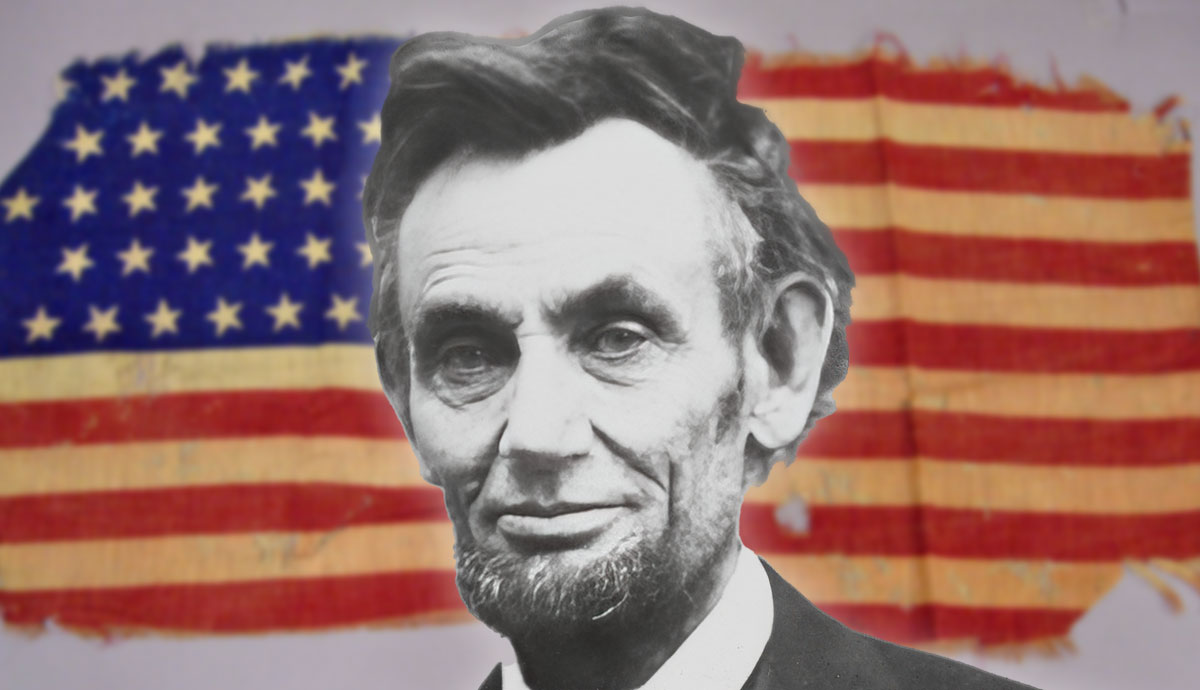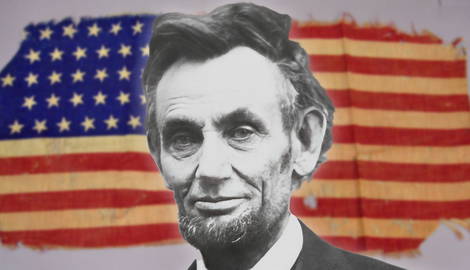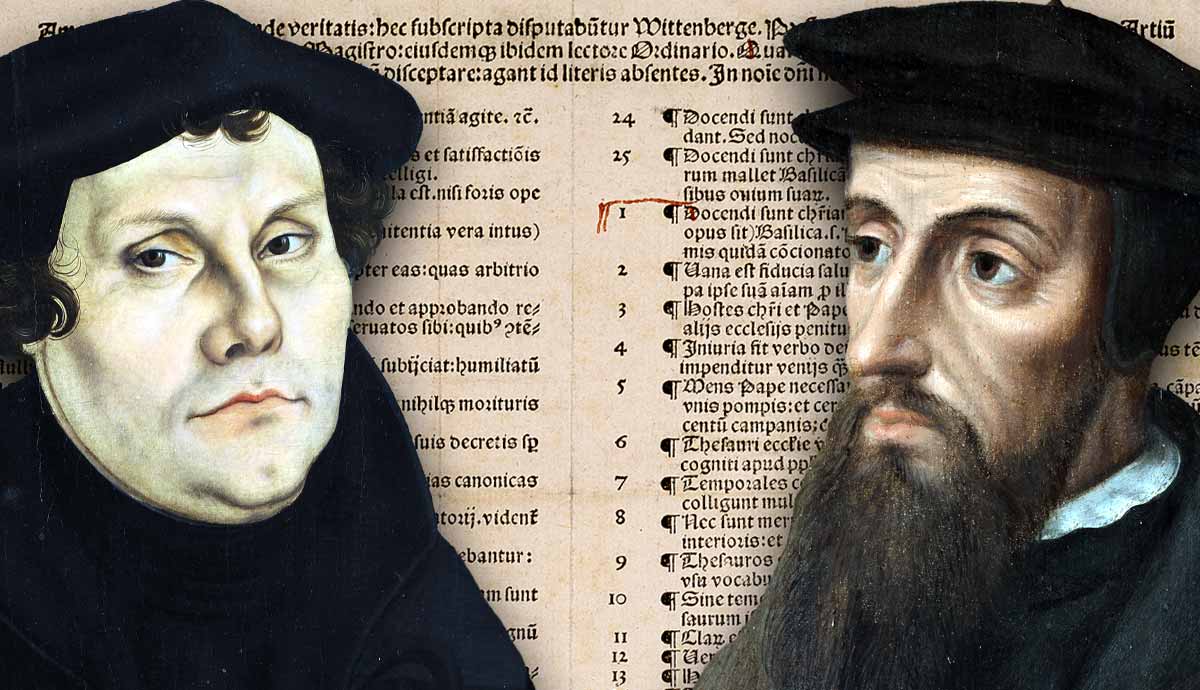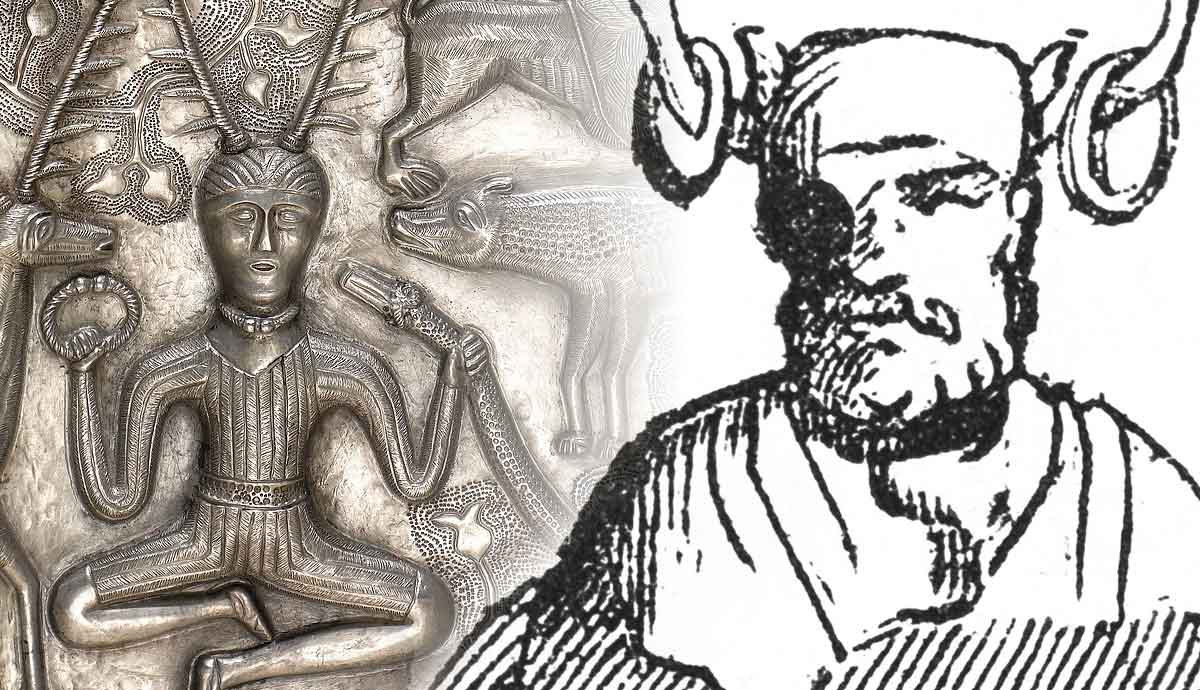
Abraham Lincoln represents a critical part of American history. He was a great reformer who guided the United States through an immensely difficult period. He issued the Emancipation Proclamation, ended slavery, and preserved the Union, defeating the Confederates in the process.
It is no secret that his presidency was a difficult one and won him many enemies, one of whom would end up assassinating him.
Abraham Lincoln’s life wasn’t just limited to his presidency, however. His was a life full of turmoil and struggle. The road that led him to the White House was a long one that started in a small log cabin in rural Kentucky.
Early Life

Abraham Lincoln was born on February 12, 1809 into a family of modest means in a log cabin in rural Hardin County, Kentucky. He was the second of three children born to Thomas Lincoln and Nancy Hanks. He had an older sister, Sarah, and a younger brother, Thomas, who died in infancy. Nancy Hanks was described as fervently religious. The family was from Separate Baptist culture, which forbade alcohol, dancing, and, importantly for Abraham Lincoln, slavery.
Abraham’s father worked hard but fell into financial difficulties. His career as a farmer was severely impacted when he lost 200 acres of land due to title disputes. He was also a talented carpenter, and he plied his trade in Kentucky and afterwards when they moved to Indiana, a territory where slavery had been outlawed.
Their first years in Indiana were harsh. They had to seek temporary shelter during their first winter, after which they built a log cabin and started farming. Abraham helped his father in the fields, but it is notable that he did not enjoy hunting or fishing.
They eventually settled in a wild region of the frontier where Lincoln recounted in his memoirs that many wild animals lived there, including bears. He did not have access to urban education, but he still learned to read and write.
A Self-Made Man

Abraham’s education was largely due to his own desire to learn, and he was largely self-taught, although he occasionally had the help of itinerant teachers. He was an ambitious child, and his ambition would continue throughout his life. He dedicated his whole life to the pursuit of learning.
Learning how to read must have been a challenge for young Abraham, as his parents would have certainly been almost illiterate. How he did it remains a mystery to this day.
On October 5, 1818, Abraham’s mother died of milk sickness. Abraham was nine at the time, and Sarah was eleven. A few months later, his father married Sarah Bush Johnston, a widow from Kentucky. She was a compassionate woman and comforted the young Abraham through his grief. As a result, Abraham had a great deal of affection for her.
Abraham grew into a tall, strong, and athletic young man. By the age of 21, he was six feet, four inches. He became skilled in using an ax, but his stepmother recounted that Abraham did not enjoy physical labor.
Nevertheless, he enjoyed sports and became an avid wrestler in his youth. At the age of 21, he became the country wrestling champion.
Odd Jobs

In 1830, Abraham moved with his family to Illinois. This was partly due to the fear of a milk sickness outbreak. At the time, it was thought that the illness was infectious, as it was not yet understood that it was caused by drinking milk from cows that had eaten white snakeroot.
Abraham helped build his father’s farm, but he had no intention of becoming a farmer. He worked as a flatboatman and sailed all the way down to Mississippi before returning to Illinois. Upon his return, he worked as a postman and a surveyor. He settled in New Salem, a town with around 25 families.
The outbreak of hostilities with the Native Americans in the region would put his life on a different path. During his time in Illinois, he was well-liked in New Salem and won the friendship and goodwill of many of his neighbors.
When the Black Hawk War broke out, local volunteers elected him to be their leader. Although Abraham saw no action during this conflict, his leadership position saw him connect with people in the political realm. Thus, his attention was turned towards a career in politics.

Before he ran for any office, however, Lincoln opened a general store with a friend, William Berry. After obtaining a liquor license, the store was converted into a tavern. Lincoln was forced to run the place by himself, as Berry became an alcoholic and was often unable to work. Despite the fact that business was good, the tavern went into debt, and Lincoln was forced to sell his share.
In the early 1830s, Lincoln was said to have been romantically involved with a woman named Ann Rutledge until her death at the age of 22 in 1835. Evidence for this courtship is scarce, however. Following this tragedy, Lincoln spent several years courting a woman named Mary Owens, who rejected his marriage proposal.
Lincoln the Politician

Lincoln’s first foray into politics did not result in anything special. He ran for the Illinois House of Representatives but finished 8th out of 13 candidates. Many discovered, however, that he was a skilled raconteur.
In 1834, he achieved success, running as a Whig Party candidate, and began his four terms representing Sangamon County in the Illinois House of Representatives. He championed the expansion of suffrage to all white males, which was at the time restricted to landowners. He also was opposed to slavery but was not yet a complete abolitionist. In this, he was also influenced by the anti-slavery stance of his Whig Party heroes, Henry Clay and Daniel Webster.
His first few years in his new position also gave him the opportunity to help expand the transport infrastructure of Illinois. Lincoln stressed this over agricultural issues.
During this time, he also studied law and was admitted to the bar on September 9, 1836. He was just 25 years old at the time. Soon thereafter, he moved to Springfield, Illinois. This was the state capital, and it represented far more opportunities for a young lawyer and politician looking to make a name for himself.
Love & Marriage

In 1839, Lincoln met Mary Todd, the daughter of a wealthy lawyer and businessman from Kentucky. The two fell in love and courted for several years before finally getting married on November 4, 1842. The two would continue to have a long and happy marriage from which four children would be born.
Sadly, however, three of the children would not live till adulthood. Edward died in infancy, and William Wallace contracted typhus and died at the age of 11. Thomas “Tad” Lincoln survived his father but died at the age of 18 in 1871. The cause of his death is unknown, but it was likely due to an underlying health issue related to the lungs or the heart.
The eldest son, Robert Todd Lincoln, was born in 1843 and lived a long and successful life. Following in his father’s footsteps, he became a lawyer and a politician. He died in 1926 at the age of 82.
Lincoln attended Presbyterian church services with his wife, but he was not overly religious, and he maintained a skepticism towards church practices.
Early Successes & Losses in Politics & Law

In 1843, Lincoln also sought the nomination for Illinois’ 7th district in the US House of Representatives. He lost the election but succeeded three years later. During his short stint in office, the Mexican-American War raged, and Lincoln became an outspoken critic of this conflict. He viewed it as President James Polk’s quest for military glory. Lincoln served a single term in office from 1847 to 1849.
In 1848, after Zachary Taylor won the election, Lincoln had hoped to be offered a better position, but he was only offered the governorship of the Oregon Territory. Lincoln found this unsatisfactory, and he resigned his post and returned to Illinois, where he continued practicing law.

As a lawyer, Lincoln became immensely successful in representing large firms and banks. When tensions rose due to the increasing divide between the southern states and the northern states over the issue of slavery, Lincoln felt compelled not just by his own principles but by the insistence of his peers to get back into politics. During his time as a lawyer, he had gained a reputation of high moral standing. He was also seen as shrewd and, above all, honest—the latter being a common adjective used to describe the man, “Honest Abe.”

The Kansas-Nebraska Act of 1854 was a particular target for Lincoln. The act allowed each state to decide its own status over whether to allow slavery. This incensed Lincoln, who saw it as a path to increased slavery.
As the Whig Party faded away, Lincoln joined the burgeoning Republican Party and challenged incumbent Stephen A. Douglas in a senatorial race. Although he lost, Lincoln gained widespread recognition and support for his stance against slavery. His fame and influence continued to spread, and in May 1860, he was selected to be the Republican Party’s presidential candidate.
The Presidential Election of 1860: Lincoln Wins

In November, the presidential elections took place, and once again, Lincoln ran against Stephen Douglas, who was one of the two candidates representing the Democratic Party. Lincoln won the election and became the 16th president of the United States.
This was partly due to the massive split that had occurred in the Democratic Party. The Northern Democrats, represented by Stephen Douglas, proposed that each state should decide for itself on the issue of slavery, while the Southern Democrats (also known as the “Dixiecrats”) wanted to retain slavery in all the states. Lincoln received 40 percent of the vote, Douglas received 29 percent, and the southern Democrats, represented by John C. Breckinridge, received 18 percent. John C. Bell of the Constitutional Union received 12 percent of the vote. Of the 303 Electoral College votes, Lincoln received 180 and won the election convincingly.

As a president, Abraham Lincoln would leave his biggest legacy on the American nation. His dedication to his belief in abolishing slavery would lead the country to a great reckoning as the states that disagreed with his policies were prepared to wage the bloodiest chapter in American history.
Throughout it all, Lincoln would stand defiant, a pillar of strength that encapsulated the man he was in his youth—ambitious, steadfast, and unassailable—a true inspiration to the American people as much then as he still is now.










